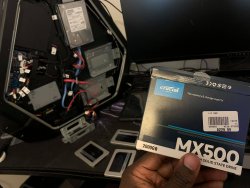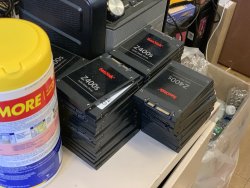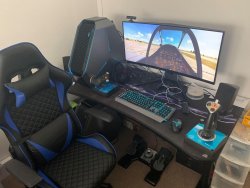Raevenlord
News Editor
- Joined
- Aug 12, 2016
- Messages
- 3,755 (1.15/day)
- Location
- Portugal
| System Name | The Ryzening |
|---|---|
| Processor | AMD Ryzen 9 5900X |
| Motherboard | MSI X570 MAG TOMAHAWK |
| Cooling | Lian Li Galahad 360mm AIO |
| Memory | 32 GB G.Skill Trident Z F4-3733 (4x 8 GB) |
| Video Card(s) | Gigabyte RTX 3070 Ti |
| Storage | Boot: Transcend MTE220S 2TB, Kintson A2000 1TB, Seagate Firewolf Pro 14 TB |
| Display(s) | Acer Nitro VG270UP (1440p 144 Hz IPS) |
| Case | Lian Li O11DX Dynamic White |
| Audio Device(s) | iFi Audio Zen DAC |
| Power Supply | Seasonic Focus+ 750 W |
| Mouse | Cooler Master Masterkeys Lite L |
| Keyboard | Cooler Master Masterkeys Lite L |
| Software | Windows 10 x64 |
For users that want to fully migrate their HDD storage towards a speedier SSD-option, Samsung's QVO series has usually been one of the more interesting prospects. Built solely with the intention of offering some of the best performance/$ metrics in the SSD storage space, the QVO series keeps Samsung's quality track record when it comes to NAND production but aims to reduce pricing as much as possible.
Amazon has now listed an 8 TB, consumer-available Samsung 870 QVO SSD. This SSD won't win any speed contests: it's built on the 2.5" form-factor and features a SATA III interface, but then again, this isn't meant to be used as users' fastest storage solution - it's meant to replace high-capacity HDDs while offering a notable performance improvement. It's very likely the QVO 870 is using Samsung's QLC (quad level cell) 3D V-NAND tech - which is still fine for most use-cases where you'll be mostly reading from the disc (and honestly, it's likely that most users would never even see performance degradation over the lifetime of the SSD, should they have a typical usage scenario). The 8 TB Samsung 870 QVO is currently listed on Amazon for a relatively steep $899.99 - which still amounts to some 11 cents per GB, so not a bad deal at all. Remember that pricing is currently slightly on the high side following the COVID-19 pandemic, though.
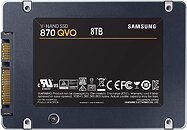
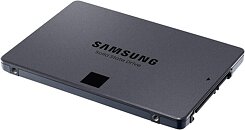
View at TechPowerUp Main Site
Amazon has now listed an 8 TB, consumer-available Samsung 870 QVO SSD. This SSD won't win any speed contests: it's built on the 2.5" form-factor and features a SATA III interface, but then again, this isn't meant to be used as users' fastest storage solution - it's meant to replace high-capacity HDDs while offering a notable performance improvement. It's very likely the QVO 870 is using Samsung's QLC (quad level cell) 3D V-NAND tech - which is still fine for most use-cases where you'll be mostly reading from the disc (and honestly, it's likely that most users would never even see performance degradation over the lifetime of the SSD, should they have a typical usage scenario). The 8 TB Samsung 870 QVO is currently listed on Amazon for a relatively steep $899.99 - which still amounts to some 11 cents per GB, so not a bad deal at all. Remember that pricing is currently slightly on the high side following the COVID-19 pandemic, though.


View at TechPowerUp Main Site


